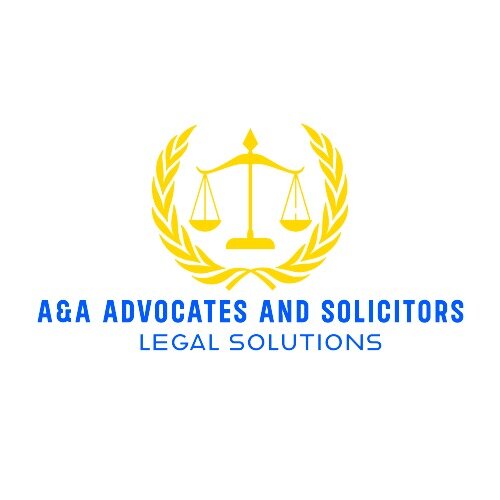Best Whistleblower & Qui Tam Lawyers in Ghana
Share your needs with us, get contacted by law firms.
Free. Takes 2 min.
Or refine your search by selecting a city:
List of the best lawyers in Ghana
About Whistleblower & Qui Tam Law in Ghana:
Whistleblower & Qui Tam laws in Ghana are designed to protect individuals who report fraudulent activities, corruption, or misconduct within an organization. Whistleblowers are individuals who speak out against wrongdoing, while Qui Tam refers to a legal action brought by a private individual against a party who is believed to have violated the law.
Why You May Need a Lawyer:
You may need a lawyer in Whistleblower & Qui Tam cases if you have witnessed fraud, corruption, or misconduct in your workplace and wish to report it. A lawyer can help you navigate the legal process, protect your rights, and ensure that you are not retaliated against for whistleblowing.
Local Laws Overview:
In Ghana, the Whistleblower Act, 2006 (Act 720) provides protection for whistleblowers who report misconduct in good faith. The law prohibits retaliation against whistleblowers and establishes mechanisms for reporting and investigating complaints of misconduct.
Frequently Asked Questions:
1. What protections are available for whistleblowers in Ghana?
Whistleblowers in Ghana are protected from retaliation, such as dismissal or demotion, under the Whistleblower Act, 2006.
2. How do I report misconduct as a whistleblower in Ghana?
You can report misconduct to the appropriate authorities, such as the Commission on Human Rights and Administrative Justice (CHRAJ) or the Office of the Special Prosecutor.
3. Can I remain anonymous as a whistleblower in Ghana?
Yes, the Whistleblower Act, 2006 allows whistleblowers to remain anonymous when reporting misconduct.
4. What is Qui Tam litigation in Ghana?
Qui Tam litigation allows private individuals to bring legal action on behalf of the government against parties who have defrauded the government.
5. How can a lawyer help me in a Whistleblower & Qui Tam case?
A lawyer can provide legal advice, help you gather evidence, represent you in court, and protect your rights throughout the legal process.
6. Is there a statute of limitations for filing a Qui Tam lawsuit in Ghana?
Yes, Qui Tam lawsuits must be filed within a certain timeframe, typically within a few years of discovering the fraudulent activity.
7. Can I receive a reward for reporting misconduct as a whistleblower in Ghana?
Under the Whistleblower Act, whistleblowers may be eligible for monetary rewards if their report leads to successful prosecution or recovery of assets.
8. What are the potential consequences of blowing the whistle in Ghana?
While whistleblowers are protected from retaliation under the law, they may still face challenges such as social stigma or loss of employment.
9. Can I report misconduct anonymously as a whistleblower in Ghana?
Yes, the Whistleblower Act allows whistleblowers to report misconduct anonymously to protect their identity.
10. How do I know if I have a valid Qui Tam case in Ghana?
If you have evidence of fraud against the government and wish to bring a legal action on its behalf, you may have a valid Qui Tam case. Consulting with a lawyer experienced in Qui Tam cases can help determine the viability of your case.
Additional Resources:
For more information on Whistleblower & Qui Tam laws in Ghana, you can contact the Commission on Human Rights and Administrative Justice (CHRAJ) or the Office of the Special Prosecutor.
Next Steps:
If you believe you have witnessed fraud, corruption, or misconduct and are considering blowing the whistle or filing a Qui Tam lawsuit in Ghana, it is important to seek legal advice from a qualified lawyer specializing in Whistleblower & Qui Tam cases. A lawyer can help you understand your rights, protect you from retaliation, and guide you through the legal process.
Lawzana helps you find the best lawyers and law firms in Ghana through a curated and pre-screened list of qualified legal professionals. Our platform offers rankings and detailed profiles of attorneys and law firms, allowing you to compare based on practice areas, including Whistleblower & Qui Tam, experience, and client feedback.
Each profile includes a description of the firm's areas of practice, client reviews, team members and partners, year of establishment, spoken languages, office locations, contact information, social media presence, and any published articles or resources. Most firms on our platform speak English and are experienced in both local and international legal matters.
Get a quote from top-rated law firms in Ghana — quickly, securely, and without unnecessary hassle.
Disclaimer:
The information provided on this page is for general informational purposes only and does not constitute legal advice. While we strive to ensure the accuracy and relevance of the content, legal information may change over time, and interpretations of the law can vary. You should always consult with a qualified legal professional for advice specific to your situation.
We disclaim all liability for actions taken or not taken based on the content of this page. If you believe any information is incorrect or outdated, please contact us, and we will review and update it where appropriate.
Browse whistleblower & qui tam law firms by city in Ghana
Refine your search by selecting a city.








